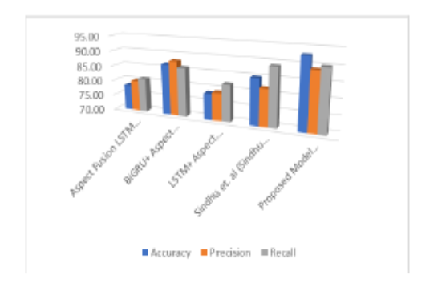


Indian Journal of Science and Technology
Year: 2023, Volume: 16, Issue: 19, Pages: 1408-1412
Original Article
Divya Jatain1*, Vikram Singh2
1Department of Computer Science & Engineering, Maharaja Surajmal Institute of Technology, New Delhi, India
2Department of Computer Science & Engineering, Chaudhary Devi Lal University, Sirsa, India
*Corresponding Author
Email: [email protected]
Received Date:10 January 2023, Accepted Date:13 March 2023, Published Date:12 May 2023
Objectives: To perform aspect extraction for opinion mining of learner comments in the online teaching-learning scenario. Methods : A machine learning model is developed for aspect extraction. The authors collected the dataset consisting of around 5000 learner comments from Coursera and performed analysis on the dataset. To validate the results, the standard SemEval2014 dataset is used. Findings: For both the contextualised and non contextualised word embeddings, the authors compiled the results of their model for two different datasets, viz., the SemEval 2014 dataset and the collected dataset. The proposed model provided an accuracy of 92.78%. Novelty: For the first time in the literature, double embedding is used for aspect extraction. Using domain-specific embedding provided good results, but the proposed model (using double embedding) is far superior in accuracy.
Keywords: Opinion Mining; Feature Extraction; Double Embedding; Learner Comments; Contextualised Embeddings
© 2023 Jatain & Singh. This is an open-access article distributed under the terms of the Creative Commons Attribution License, which permits unrestricted use, distribution, and reproduction in any medium, provided the original author and source are credited. Published By Indian Society for Education and Environment (iSee)
Subscribe now for latest articles and news.